Carl Jung was one of the first people to define the terms introvert and extrovert in a psychological context; Jung described extroverts as preferring to engage with the outside world of objects, sensory perception, and action while introverts, according to him, are more focused on the internal world, are thoughtful and insightful.
The former usually have little to no trouble expressing their thoughts, feelings, and opinions—something we can’t really say about the latter, which are often said to be shy or socially awkward and lack strong interpersonal skills. So in an attempt to understand them better, let’s take a look at the Instagram account ‘Introvert Nation.’
From getting a haircut to work and dating, it touches upon plenty of different aspects of everyday life and paints a pretty accurate picture of what it’s like to be your own best friend. Continue scrolling to check out the content that ‘Introvert Nation’ has to offer and the conversation we had on the topic with writer Sophia Dembling, the author of The Introvert’s Way: Living a Quiet Life in a Noisy World and Introverts in Love: The Quiet Way to Happily Ever After as well as psychologist Leon F. Seltzer, Ph.D., who—until October of 2020—had maintained a general private practice with clinical specialties in anger, trauma resolution (using EMDR and IFS), couples conflict, compulsive/addictive behaviors, stress control, and depression.
#1

Image credits: theintrovertnation
#2
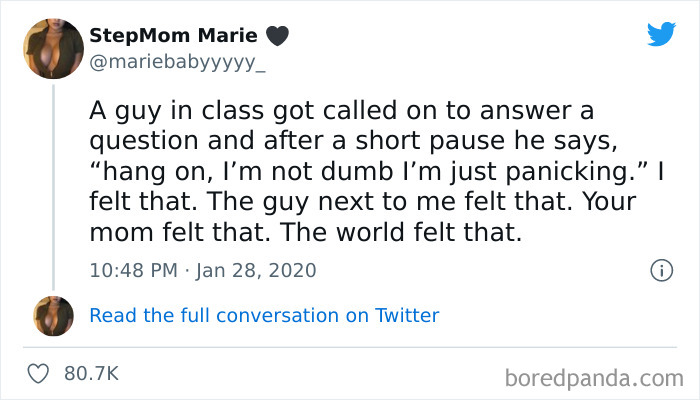
Image credits: theintrovertnation
Seltzer said that many factors make someone an introvert, but the most prominent among them relates to interacting with others, which drains their energy. “It doesn’t much matter what their social skills are or whether they actually enjoy the other’s company, they still feel depleted after being in another’s company for a substantial period of time,” the psychologist told Bored Panda.
“Because of this, they require more solitary time to regroup than do extroverts (who are energized, or re-energized, through socializing), which is one reason that, overall, introverts prefer to engage in solitary activities. They also prefer to write rather than speak, listen rather than talk, and small gatherings vs. large, boisterous parties.”
Dembling added that introversion is one of what personality psychologists call the Big Five traits (openness to experience, conscientiousness, extroversion—and therefore its opposite, introversion—agreeableness, neuroticism). “Some studies find that the brains of introverts are more active even in resting than those of extroverts, which causes us to be more easily overwhelmed/overstimulated,” she explained.
#3
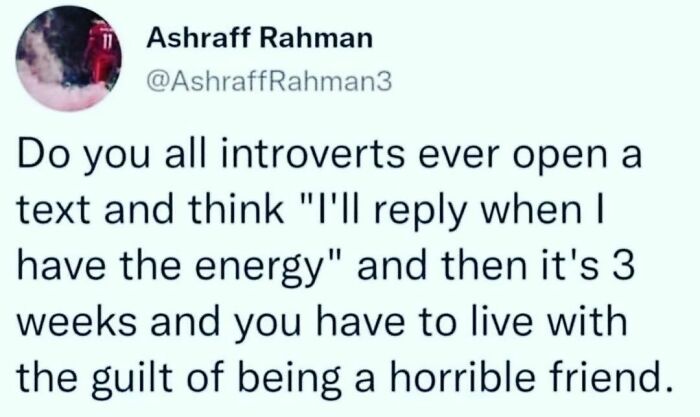
Image credits: theintrovertnation
#4

Image credits: theintrovertnation
#5

Image credits: theintrovertnation
There’s also a huge body of research showing that extroverts are happier. But one recent study by the University of California, Riverside, psychologist Sonja Lyubomirsky and U.C. Riverside graduate student Seth Margolis, suggests that simply acting like an extrovert might actually boost well-being—even for introverts.
The researchers had 131 undergraduates initially undergo a number of assessments to set a baseline for their health and personality. Next, Lyubomirsky and Margolis asked the students to alter their behaviors in specific ways for one week. Some had to be more “talkative, assertive, and spontaneous”; others were instructed to be “deliberate, quiet, and reserved.”
(Although these behaviors were not labeled extroverted or introverted, Margolis and Lyubomirsky essentially pushed the students to act within those categories.) At the week’s end, the two groups took the same tests that had established their baseline, and then they reversed roles for the second week. Afterward, they took the assessments one last time.
#6

Image credits: theintrovertnation
#7
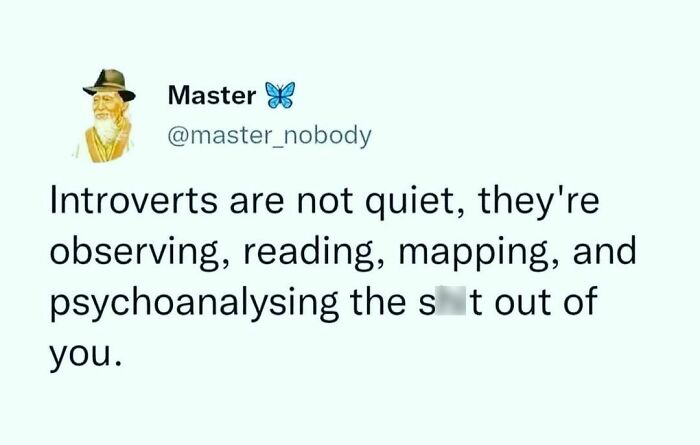
Image credits: theintrovertnation
#8

Image credits: theintrovertnation
#9
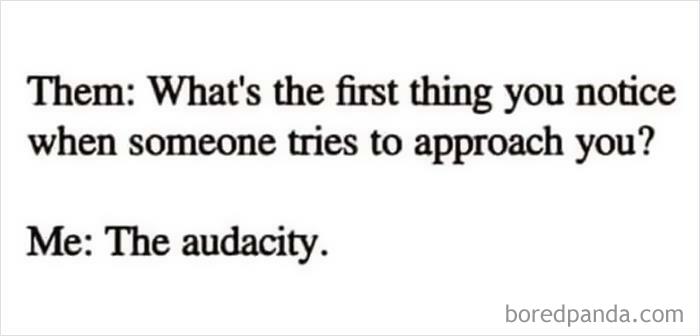
Image credits: theintrovertnation
The researchers analyzed responses to assess whether acting as an introvert or extrovert had any effect on well-being and discovered that leaning into extroverted behaviors resulted in participants reporting higher measures of well-being, including positive emotions, a sense of social connectedness, and flow (full immersion in an enjoyable activity).
The opposite was also true: people who acted more introverted than usual saw declines in well-being. “I kind of wish the research didn’t show that, but it does,” Lyubomirsky said.
#10
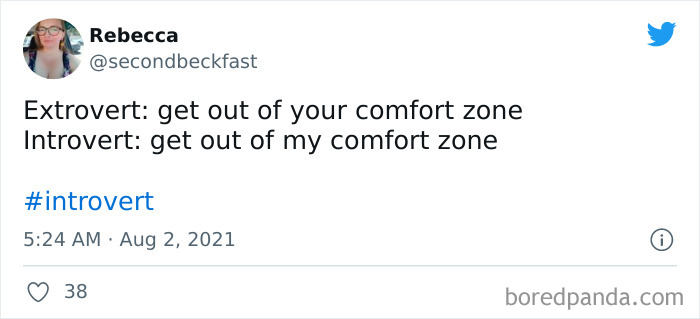
Image credits: theintrovertnation
#11
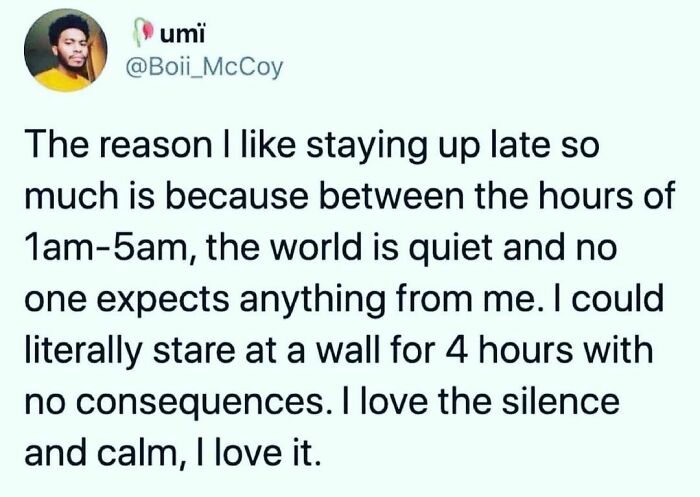
Image credits: theintrovertnation
#12

Image credits: theintrovertnation
#13
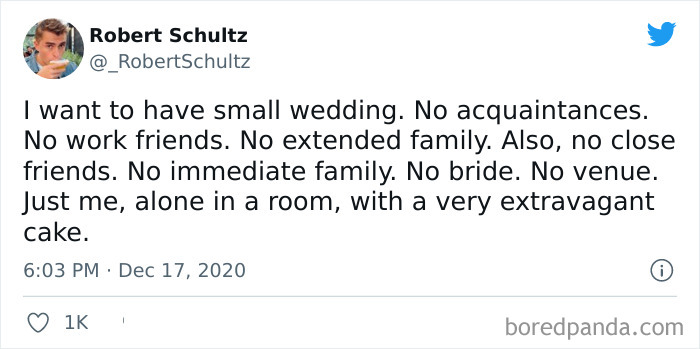
Image credits:
Writer Sophia Dembling believes that Western society favors extroverts. “For example, many teachers grade students on class participation, which can be difficult for introverts, who do better in small groups, in writing, one-on-one,” she explained. “Business also tends to favor extroverts. Introverts can find it difficult to shine in interviews, which are a form of performance, although research has found that while extroverts are better at getting the job, introverts are better at getting the job done.”
“And introverts can have difficulty getting their voices heard in professional settings. In her excellent book The Genius of Opposites, Jennifer Kahnweiler suggests that introversion and extroversion should be treated as a diversity issue and that businesses do best with a balance of both and people who understand both,” she added.
#14

Image credits: theintrovertnation
#15
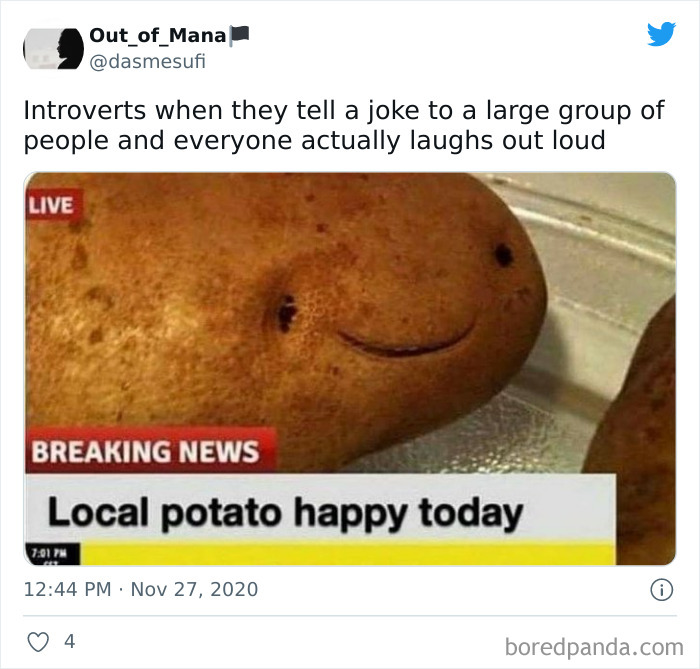
Image credits: theintrovertnation
#16

Image credits: theintrovertnation
#17

Image credits: theintrovertnation
Psychologist Leon Seltzer also supports this notion, but he doesn’t think that extroverts have it better everywhere. “My understanding is that in the U.S., extroverts outnumber introverts, but that the opposite is true in other parts of the world, both in Europe and particularly in Asia,” he said. “If you look at ads in this country, you’ll see that having a good time is illustrated not by someone sitting quietly reading a book but by eating and drinking with friends, playing sports, riding bikes, and so on.”
“Moreover, it does seem to be true that in some subtle, and not so subtle ways, introverts in America are discriminated against, almost as though their preferences are somewhat perverted. Added to this, creative individuals tend more to be introverts than extroverts, and being alone is less associated with loneliness than it is with extroverts.”
#18
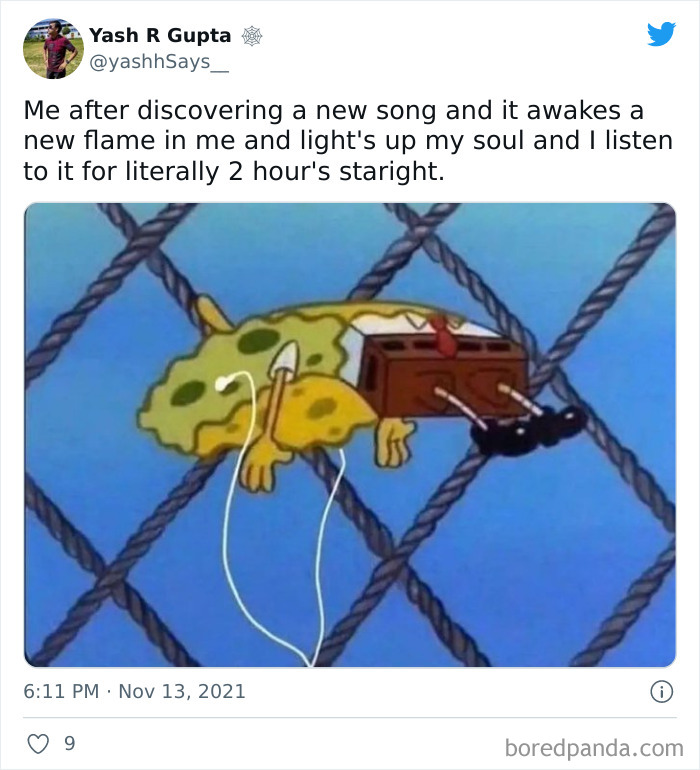
Image credits: theintrovertnation
#19
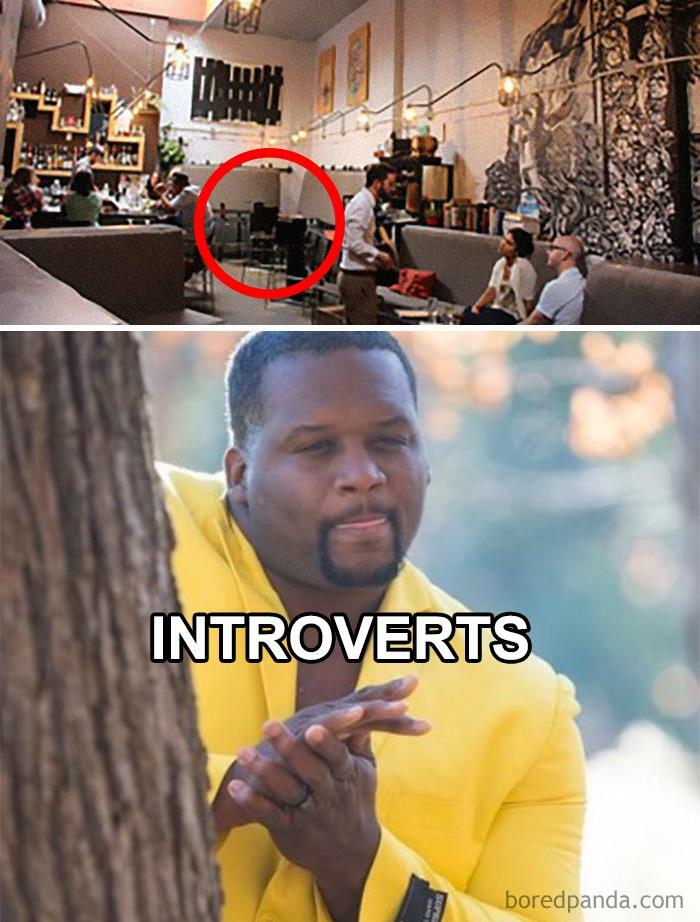
Image credits: theintrovertnation
#20
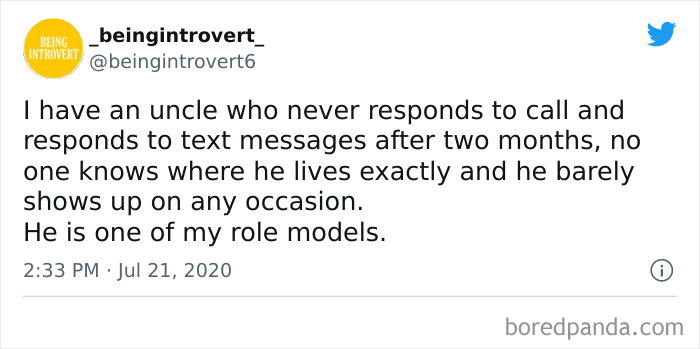
Image credits: theintrovertnation
#21
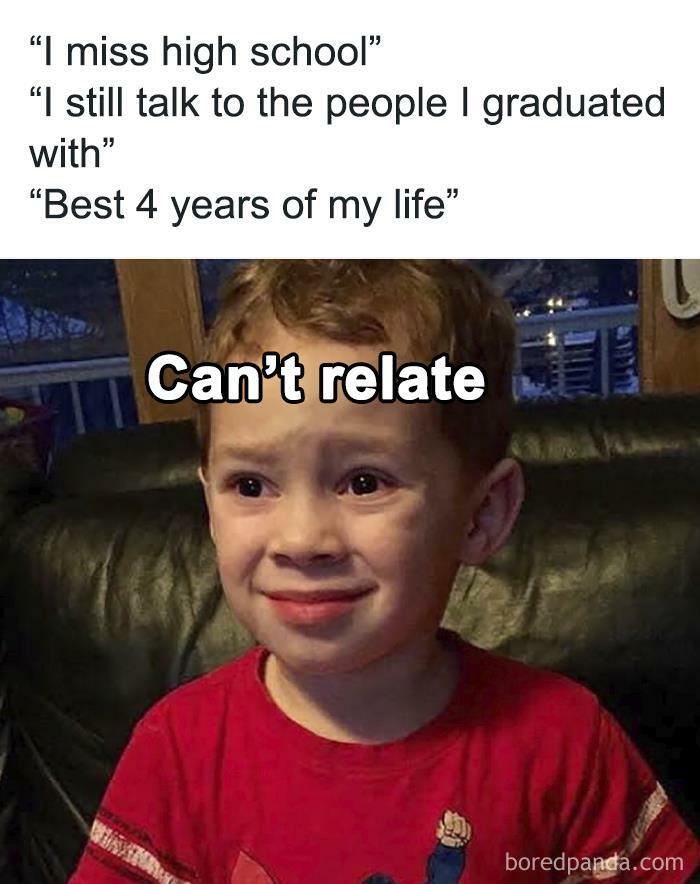
Image credits: theintrovertnation
Being an introvert can be challenging. Because they prefer quiet or alone time, some introverts can seem cold, aloof, or even antisocial to others that are more extroverted in nature.
“Being heard can be difficult; we need time to formulate our thoughts and are often talked over and through,” Dembling said. “We also often take heat for our introversion, particularly young people. Kids are chastised if they would rather sit home with a book than go out and play with friends, and the party culture of college can be trying for introverts, who might even find themselves drinking too much in order to keep up with social demands.”
#22

Image credits: theintrovertnation
#23
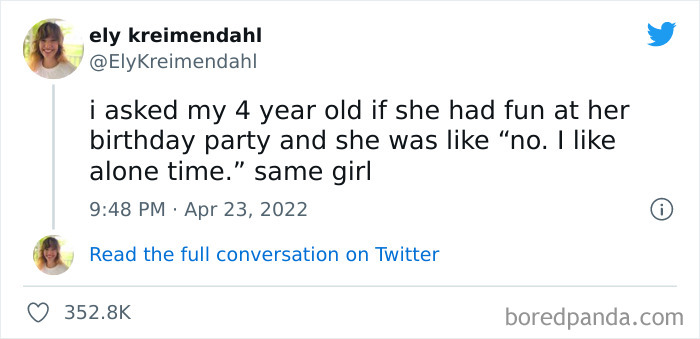
Image credits: theintrovertnation
#24
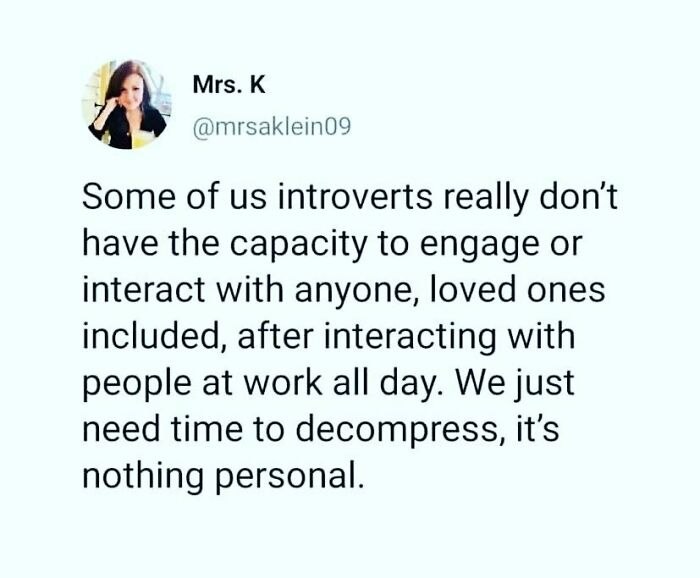
Image credits: theintrovertnation
#25

Image credits: theintrovertnation
To make their lives easier, Dembling thinks introverts should take control of their socialization and do things they enjoy with people they enjoy rather than allowing themselves to always wait for invitations (which are often extended by extroverts to do extroverted things).
“Figure out what you like to do and do the uncomfortable thing by extending invitations and you might find yourself enjoying people more,” she suggested. “Also, the only way I can get myself to go to parties is if I promise myself that I can leave any time I want. Don’t let anyone tell you the party will just fall to pieces if you leave; it won’t, and if you let yourself leave when you’re ready you will find it a lot easier to say yes the next time.”
#26
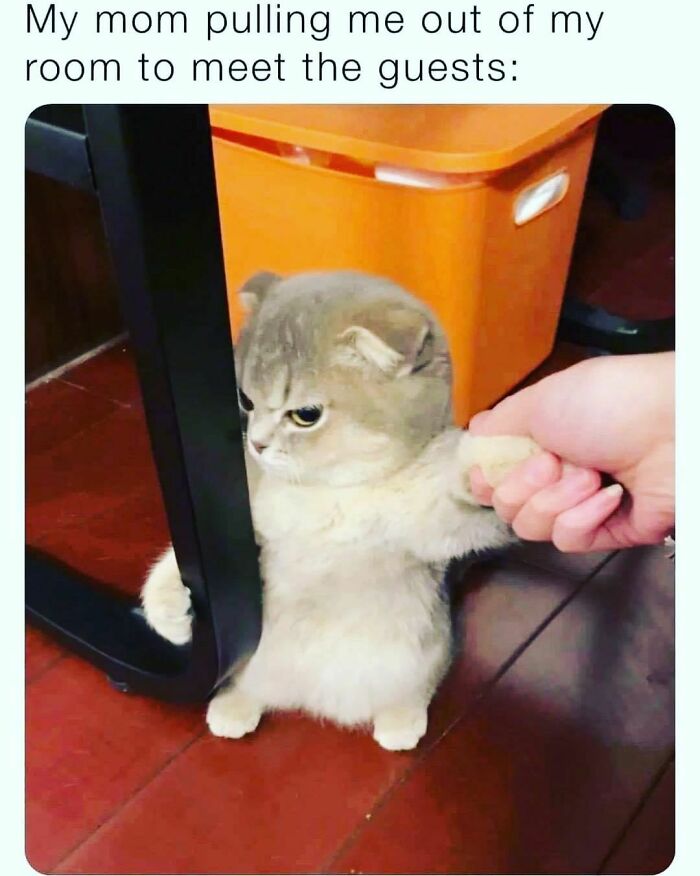
Image credits: theintrovertnation
#27
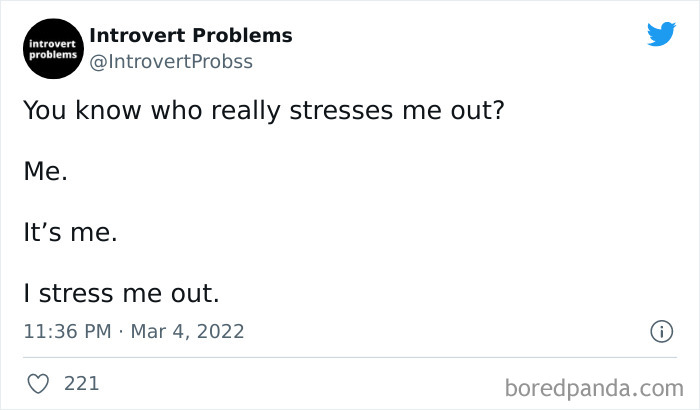
Image credits: theintrovertnation
#28
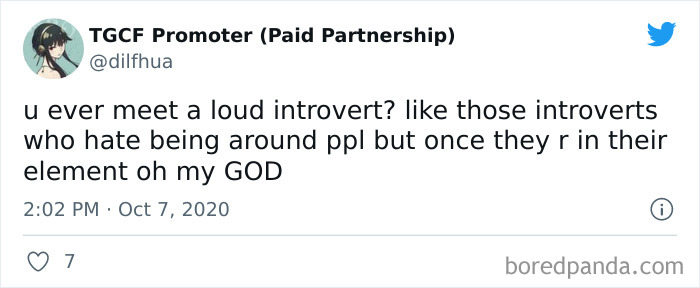
Image credits: theintrovertnation
#29

Image credits: theintrovertnation
If you need any encouragement, keep in mind that you don’t need to reinvent yourself to connect to other people. “Contrary to common belief, introverts are no less skilled than extroverts in socializing,” Seltzer said.
“In fact, because they’re better listeners than extroverts and think first about what they’re going to say before saying it—vs. extroverts, who need to discover what they about something by first circling around it—as often as not extroverts can learn as much about effective socializing from introverts as the reverse.”
#30

Image credits: theintrovertnation
#31
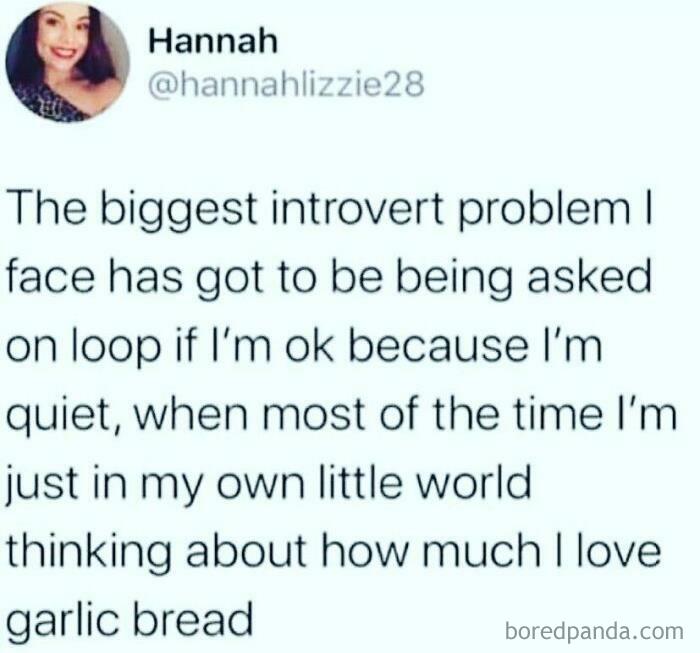
Image credits: theintrovertnation
#32
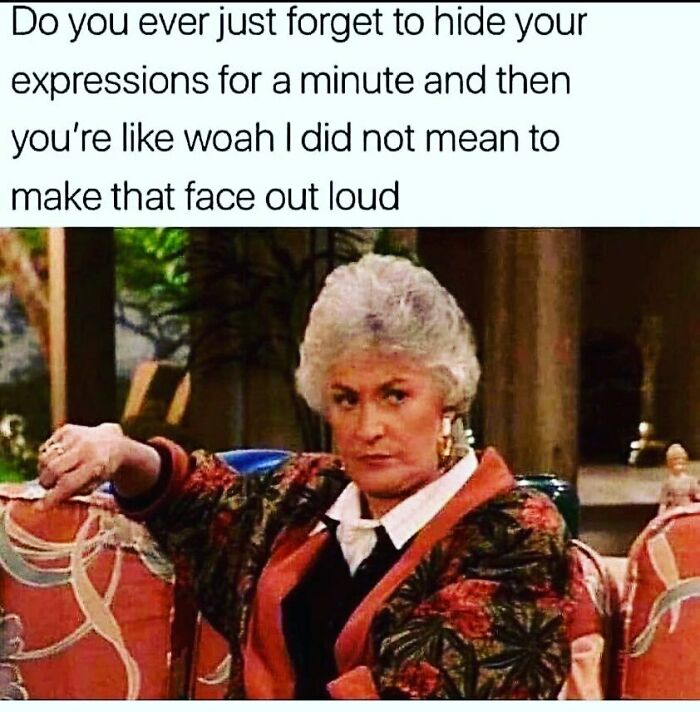
Image credits: theintrovertnation
#33
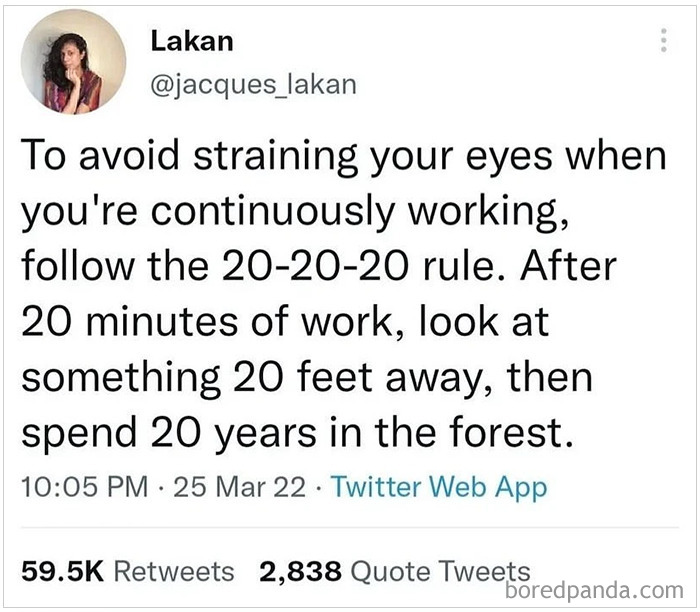
Image credits: theintrovertnation
The bottom line is that there’s nothing wrong with the fact that you’re an introvert. Or an extrovert for that matter.
“The brain’s reticular activating system determines whether one leans toward introversion or extroversion, and it’s not anything that can change or needs to change,” Seltzer added. “As a therapist, I’ve had people come to me to help me change them from an introvert to its opposite, and my response is that I can’t do that but I can help them to accept—and even celebrate—their introversion, which is not a defect.”
“If they do need to develop better social skills I can help them achieve that, but it won’t change their inborn disposition to find introverted thinking and activity more congenial than what’s ‘natural’ to their extroverted counterparts. Nor should it be,” the psychologist explained.
#34
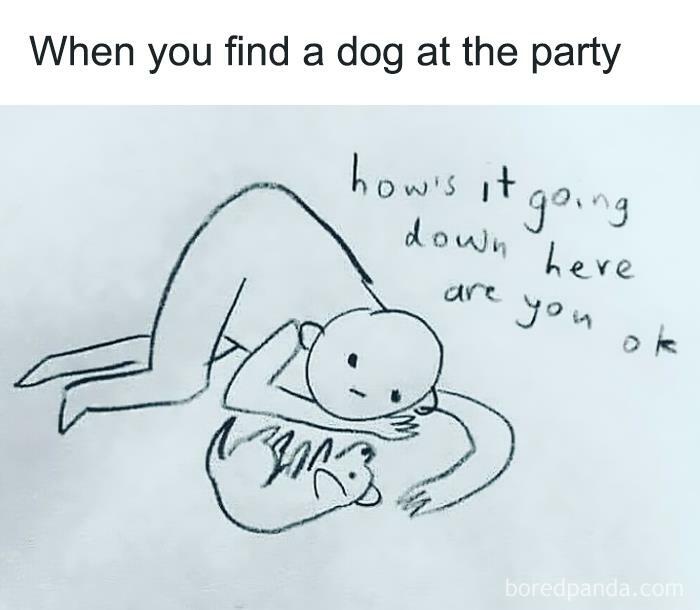
Image credits: theintrovertnation
#35

Image credits: theintrovertnation
#36
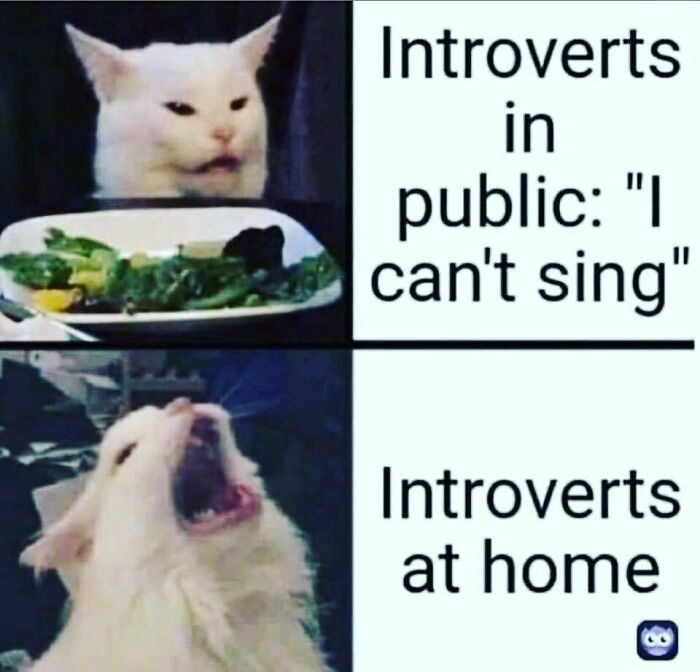
Image credits: theintrovertnation
#37

Image credits:
#38
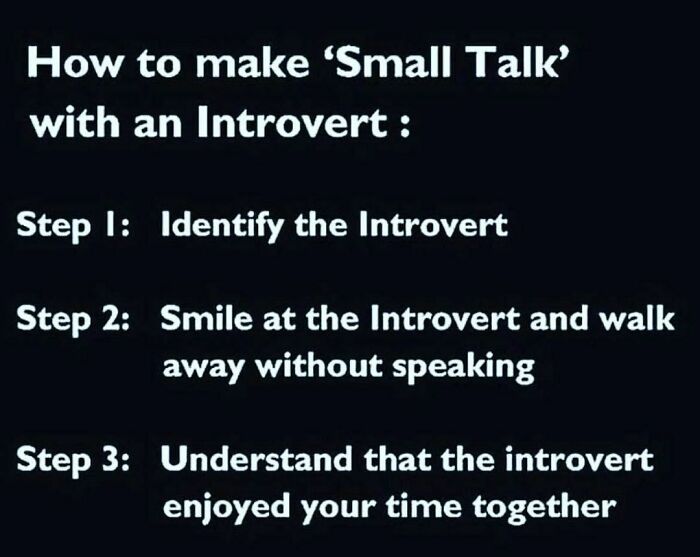
Image credits: theintrovertnation
#39
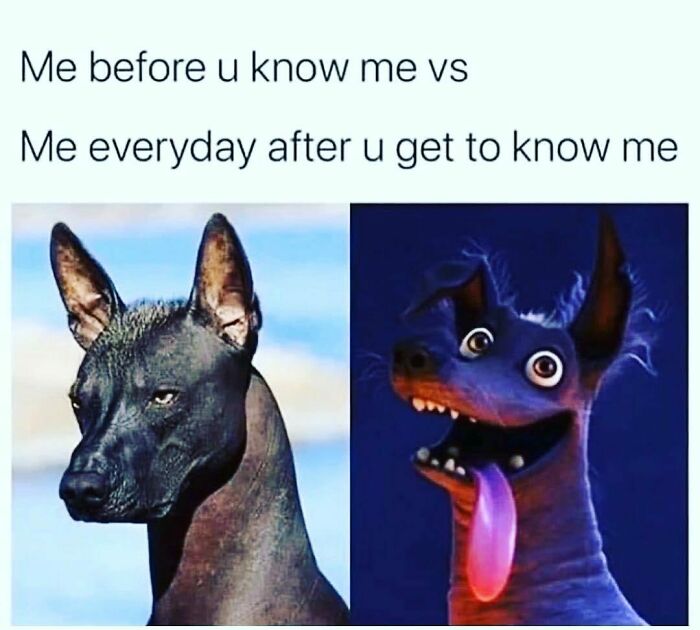
Image credits: theintrovertnation
#40
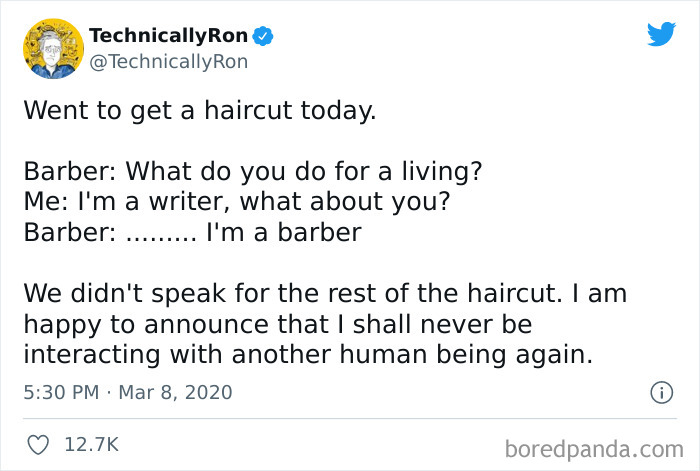
Image credits: theintrovertnation
#41

Image credits: theintrovertnation
#42

Image credits: theintrovertnation
#43
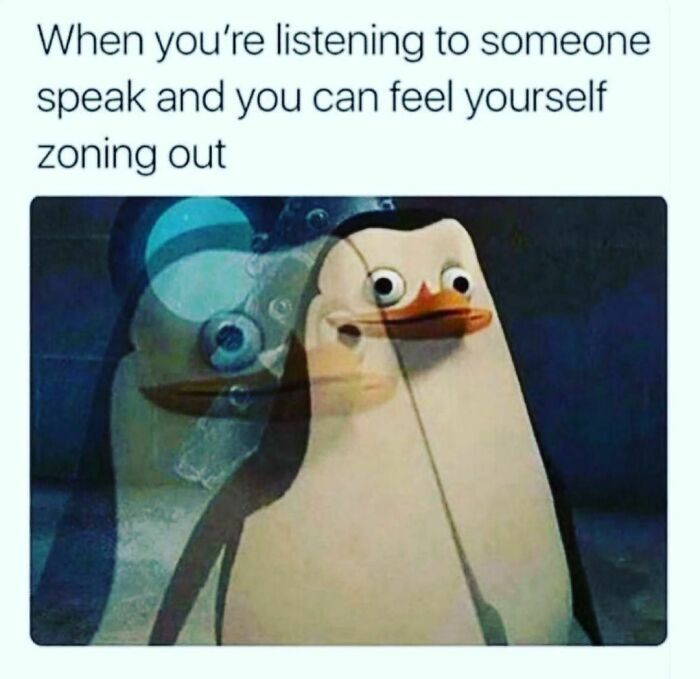
Image credits: theintrovertnation
#44

Image credits: theintrovertnation
#45

Image credits: theintrovertnation
#46

Image credits: theintrovertnation
#47

Image credits: theintrovertnation
#48
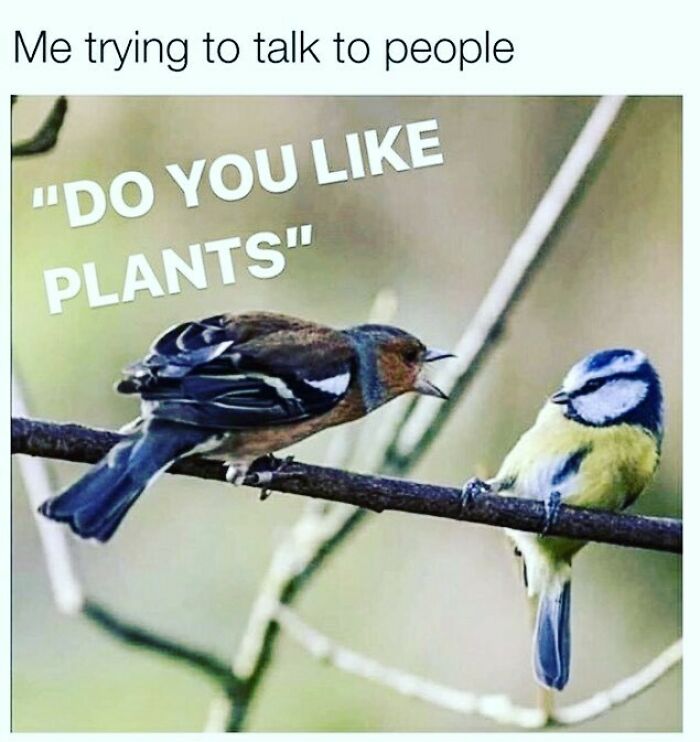
Image credits: theintrovertnation
#49
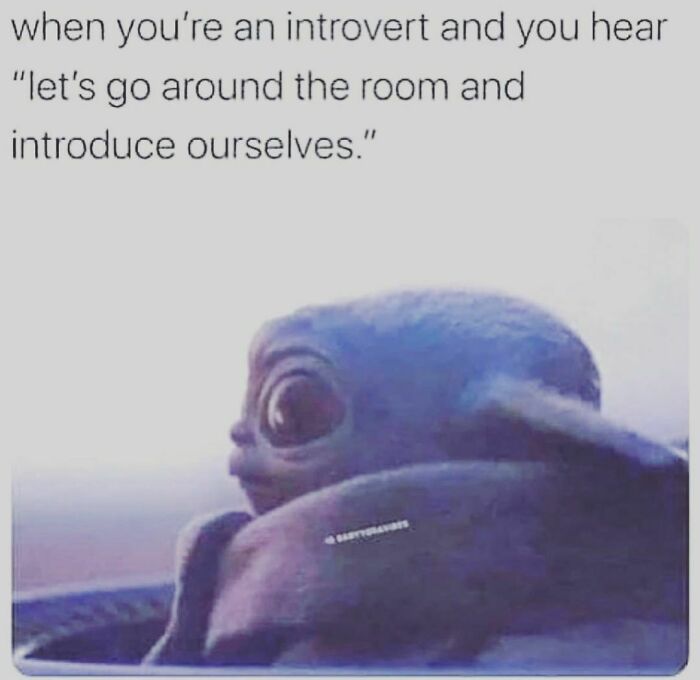
Image credits: theintrovertnation
#50

Image credits: theintrovertnation
This content was originally published here.



Comments are closed.